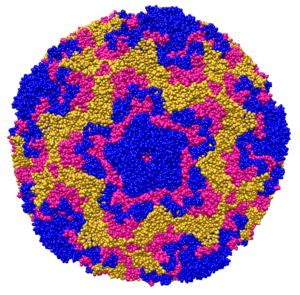 After its global emergence in 2014, subsequent outbreaks of enterovirus D68 occurred in 2016 and 2018. The expected outbreak of 2020 never materialized, likely due to masking and physical distancing put in place for the SARS-CoV-2 pandemic. As these measures are relaxed in multiple countries, increased in cases of respiratory virus infection have been observed, including enterovirus D68 in Europe.
After its global emergence in 2014, subsequent outbreaks of enterovirus D68 occurred in 2016 and 2018. The expected outbreak of 2020 never materialized, likely due to masking and physical distancing put in place for the SARS-CoV-2 pandemic. As these measures are relaxed in multiple countries, increased in cases of respiratory virus infection have been observed, including enterovirus D68 in Europe.
A total of laboratory-confirmed 139 EV-D68 cases were identified between 31 July and 14 October 2021 in eight countries. The peak incidence was in September, in line with seasonal occurrence of enterovirus infections. Most of the cases were in males (88/139; 63%) and mainly younger than 5 years of age (120/139; 86%), with a median age of 3 years. Clinical symptoms were reported for 120 cases; most exhibited respiratory symptoms. While neurological symptoms were present in five cases, none was diagnosed with AFP or acute flaccid myelitis (AFM).
The re-emergence of EV-D68 in Europe serves as a reminder that surveillance for this virus must continue. So far there have not been reported cases of EV-D68 infections in the United States or in other countries outside of Europe. With increased relaxation of distancing and masking measures, it is only a matter of time before EV-D68 infections and associated AFM return.
